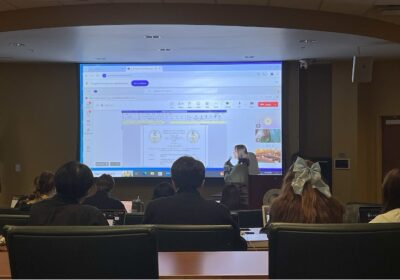Scott pitches no textbook tax, Bright Futures for summer

SPECIAL TO THE ORACLE
Florida Gov. Rick Scott announced a $65 million plan Thursday to reduce the cost of college by repealing sales tax on textbooks and allowing Bright Futures scholarships to cover summer courses.
The plan to eliminate state and local sales tax on textbooks would cost the Florida government a little over $40 million, according to Scott, but would save full-time students at least $60 a year.
“Eliminating the sales tax on college textbooks will directly help every Florida student with the cost of college by offsetting the rising price of textbooks,” Scott said at a news conference Thursday at the University of North Florida. “Also, by expanding Bright Futures Scholarships to include summer courses, we are offering more flexibility for students to achieve their goals.”
Scott proposed spending $23.5 million to extend Bright Futures for summer courses.
However, a review by the Board of Governors indicated Scott’s figure wouldn’t cover the full cost of Florida’s 12 public universities expanding Bright Futures to summer, unless the schools were selective about how students could use their scholarship.
Funded by the Florida Lottery with a current budget of $436 million, Bright Futures began as the Florida Undergraduates Scholars’ Fund in 1989. In 1997, the fund became known as Bright Futures Academic scholarship. The program allows eligible high school seniors to receive scholarship money to attend any public university in Florida.
In 2011, the state began incrementally increasing the standards needed to qualify for Bright Futures, according to the Florida College Registrars and Admissions Officers.
In the 2012-13 academic year, the requirements for the scholarship were an SAT score of 1020 or an ACT score of 22, qualifying 154,160 students. The new minimum standards are an SAT score of 1170 or an ACT score of 26, qualifying 127,573 students for the 2014-15 academic year.
As a result of fewer eligible students, the legislature appropriated less money for the 2014-15 year.







